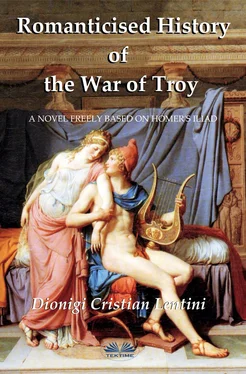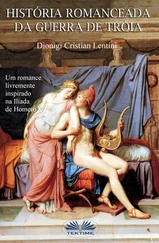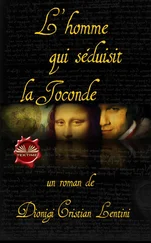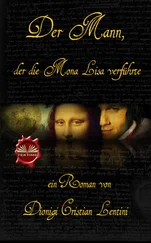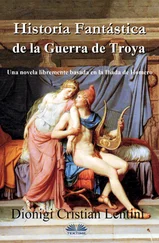In those days Helen and Paris, although they tried to avoid each other in every way so as not to betray the trust of the groom and their friend, they could not escape the divine will that day after day was fed more and more by the flame of passion in the glances of the two beautiful young people: revulsion soon became a fatal attraction the Platonic amorous glances became hot nights amid the silks of the royal bridal chamber.
Helen was now finally in love for the first time, overflowing with joy. Only two things sometimes constrained her sparkling happiness: the sight of her little daughter, Hermione, and the thought that all this would end when Menelaus returned; suddenly her face darkened and the sadness often took on a depressive form, as far as to imitate her mother in attempting suicide; but now Paris was following her everywhere and arrived in time to shield her from that extreme gesture. That same evening Paris told her his story and Helen did the same.
She was the second daughter of King Tyndareus of Sparta and the beautiful Queen Leda, who, after having given birth to the princes Clytemnestra and Castor with her royal husband, was seduced by Zeus who had turned into a swan, when Tyndareus was on a trip to Egypt. Helen and Pollux were the fruit of their union. Leda never revealed her secret and threw herself from the walls of the city of Sparta in shame before her husband returned from the Egyptian expedition. Tyndareus, for his part, raised the princes without any distinction, as if they were all his offspring, and told them their mother had died in childbirth. Meanwhile Helen was becoming more and more beautiful, even more so than her mother, and all the rulers of the neighboring regions came to Sparta to ask her father for her hand in marriage. Tyndareus, now old, was clearly in difficulty: he no longer knew how to justify the continued waste of that indomitable daughter without risking compromising the safety of the crown.
One day the king of Athens, Theseus, killer of the Minotaur in the labyrinth of Minos in Knossos and also secret pretender to the princess, managed to kidnap Helen and take her with him to Athens. The two became lovers and the Athenian ruler decided to reveal the truth about his divine origins to Helen and the circumstances of her mother's death.
Shortly thereafter, however, an expedition led by Prince Pollux brought her back to Sparta by force. It was on this occasion that the incomparable horse tamer, Castor, tragically fell in battle and Pollux asked the gods to follow his brother even in death.
Tyndareus, having regained his daughter but always in need of making allies, identified in the princes Agamemnon and Menelaus the possible saviors of his kingdom; he helped the two to drive the usurper Thyestes, their uncle, from Mycenae and to regain the throne of their father Atreus; so Clytemnestra went to marry Agamemnon and on the occasion of the wedding, on the advice of the wise king Ulysses of Ithaca, he invited all the kings and princes to court who were the pretenders to Helen's hand, he made them swear solemnly: divine fate would decide who would have his other daughter, Helen, and all the others would bless and protect that union in every way and by all means, even declaring war on anyone who attempted to separate what Fate would unite that day. The princes swore without hesitation, and soon Fate decided on the spouse and the successor of Tyndareus on the throne of Sparta: the incredulous young Menelaus.
As Helen told her story, her voice became more and more mixed with hiccups; tears gradually marked her white face with its divine features. Paris wiped her eyes and pushed the blond hair behind her ears, then asked her to stop her painful narrative; he gathered his men around him and ordered them to prepare to leave; he decided that the next day, when the city was still asleep, they would leave Hellas and return to Troy; Helen and her maids who, in the meantime, had met the beautiful young Trojans, would also leave with them.
All evening they celebrated and toasted in honor of Paris. Helen embraced her lover and her head rested on his chest. It was soon time to leave; leaving little Hermione with the housekeeper who had raised her, they ran to the beach hidden under the veil of Aphrodite. There the Trojan ship was ready to take them to the kingdom of Priam.
Aphrodite had kept her promise and her son Eros had never been as prodigal in shooting arrows as with the crew of that ship. However, old Poseidon had no liking for the slight the two lovers were about to make against Menelaus: he infuriated the Aegean enough to make the return of the faithless to Troy nothing short of miraculous.
Конец ознакомительного фрагмента.
Текст предоставлен ООО «ЛитРес».
Прочитайте эту книгу целиком, купив полную легальную версию на ЛитРес.
Безопасно оплатить книгу можно банковской картой Visa, MasterCard, Maestro, со счета мобильного телефона, с платежного терминала, в салоне МТС или Связной, через PayPal, WebMoney, Яндекс.Деньги, QIWI Кошелек, бонусными картами или другим удобным Вам способом.
Musci, A. – Minicangeli, M. 2006. Triangoli diabolici. From Rina Fort to Circe della Versilia. Investigation of an archetype of evil, Rome, Alternative Press.
Ibidem
